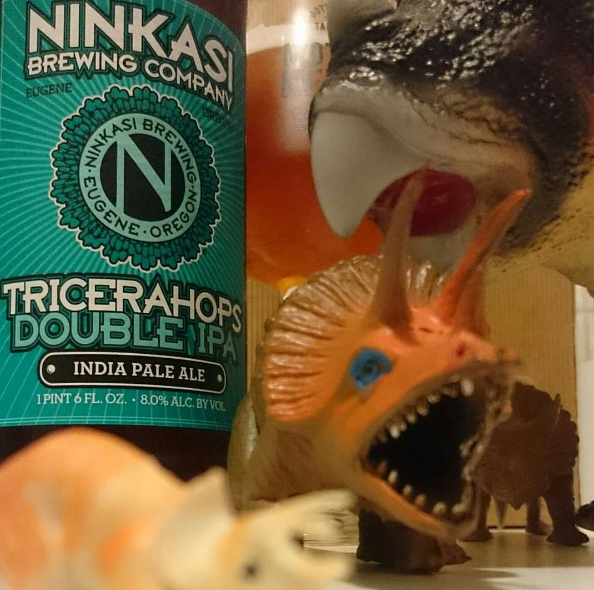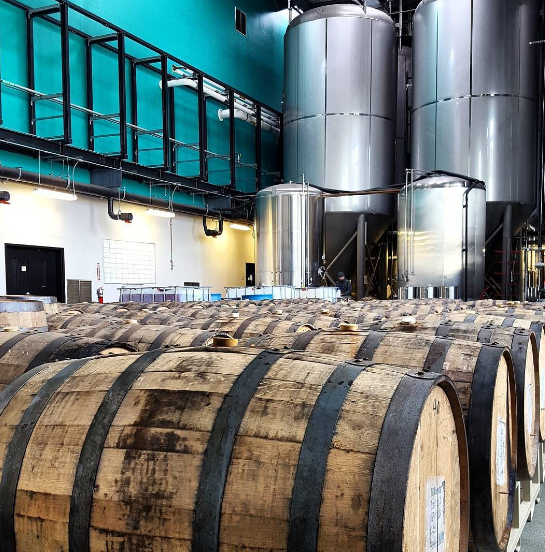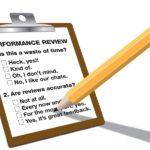Performance reviews have been deep-sixed at Ninkasi Brewing Company.
Cheryl Collins, Eugene-based Ninkasi’s chief people officer, shared this bit of news with a capacity room at the Oregon Manufacturing Extension Partnership (OMEP) summit held in April. People gasped and hands shot into the air. How is that possible? How is that working?
Like the microbrewery’s Tricerahops: smooth.

In a telephone interview in mid-April, Collins, 34, explains that over the course of career, she’s worked at the bottom of a company’s totem poll, as well as an operations and human resources manager.
“And in every single one of my roles, I’m like, ‘I hate this process (of performance reviews); I cannot see the value it’s providing. Employees think it’s the only way to get a raise, and managers do it just to check a box. Who likes it?’”
Very few, according to many human resources experts and prognosticators. In fact, the July-August 2015 issue of the Harvard Business Review called out “traditional performance appraisals” as “perhaps the most reviled standard practice in all of management.”
Traditional performance reviews are deeply rooted in the majority of companies. Intel is a timely example given the company’s recent review-based spate of layoffs. Yet some businesses are refashioning or slashing them altogether. Ninkasi seems at the forefront of this trend.
“Ninkasi is very advanced in its thinking,” says Chris Scherer, president of Portland-based OMEP. Other than OMEP itself, Scherer says he’s unaware of others in Oregon taking this step.
The traditional performance-review structure has been around since what the HBR calls the “gray flannel suit” era, post-WWII. About 30% of executives — who had no direct reports, just underlings — died in office (often from heart attacks), leaving a management vacuum. Small companies went belly up and big ones had to be sold.
“In that leadership void, modern HR was born, ushering in practices such as…360-degree feedback,” the magazine reports.
But since the early 2000s, the workplace has changed dramatically.
“Is It Time to Put the Performance Review on a PIP?” a headline in the April 2015 issue “HR Magazine” asks. (PIP is HRspeak for performance improvement plan.)
It reports that “the number of employers that are either ditching numerical ranking of employees or tossing out the entire performance review process has grown from 4% to 12%” in a two-year period.

The staff routinely volunteers together, such as at the Springfield-Eugene Habitat for Humanity.
The trends today are toward supervisor training, frank yet positive and regular conversations with employees and goal-setting across the organization.
Ninkasi fits the bill.
Founded in 2006, the brewing company – whose name in Sumerian means goddess of beer – brought on Collins in early 2012.
After only a few months — and comprehensive conversations with colleagues at all levels — Collins says she approached owners Jamie Floyd and Nikos Ridge about getting rid of traditional performance reviews. They are “old-school” and derided – if not feared – by employees and managers alike, Collins said. Why not do away with them?
Her colleagues responded with a cautious, yet excited, “We can do that?” She countered: “Yep. There’s no law that says you must do them.”
Within two months, Ninkasi parlayed its “learning organization” philosophy into manager-employee relationships and job-evaluation practices.
Company managers undergo frequent leadership trainings and provide regular feedback to their employees. And employees like Austin Card share with their bosses personal and employment goals.
Card, 24, has worked in Eugene fabric and grocery stores. At the latter, he says, his performance reviews were based solely on customer feedback via surveys.
“I bust my tail at work, and you’re telling me customers are angry?” Card, Ninkasi’s warehouse coordinator, said in a phone interview. By contrast, shortly after he started at Ninkasi in 2014, Card’s manager approached him, asking, “’How do you want to better yourself?’ I was like, ‘Whoa? OK, whoa?’”
The managers really do care about you,” he continues. “There’s an open line of communication all the time. This makes for great camaraderie” both at work and after hours.
During his relatively short tenure, Card has moved from the brewery’s production line to warehouse supervision, and in his personal life he upped his fitness game to improve his health.
Card’s manager, John Schlea, 34, is a former bottling line worker who’s been with Ninkasi since 2009. Schlea says the company’s emphasis on leadership training and regular check-ins maintains momentum and dynamism in the ranks.

John Schlea
In his fifth position since starting at Ninkasi, Schlea says each new role is tailor-made for him, and he loves guiding his employees into their perfect positions, based on their own personal goals.
“Our process now is more forward-looking and development-oriented,” Schlea says. “It really gives us an opportunity to focus on growth rather than looking back.”
And while the company itself has grown – with 110 employees in Oregon and 22 others in Washington, Colorado, and California – Ninkasi is still a small business.
Its size is a key success factor in its unique feedback practices, says Scherer of OMEP, which itself recently implemented a coaching-mentoring system to replace traditional performance reviews for its roughly 25 employees.
Doing away with performance reviews has proved a relief to both managers and employees alike. But will it work for very large companies?
A select few — Netflix, Google, Adobe, and Microsoft – report they are doing away with your grandfather’s performance reviews. But insiders are skeptical.
“I don’t know how Netflix pulls it off, due to its size,” Scherer muses.
In an email to Oregon Business, Noah Keteyian, a company media relations representative working out of Microsoft’s Portland office, said: “There is some information in this BBC report, (about the psychology of feedback and ways to present it to employees) but we don’t have anything further to share on the topic right now.”
Indeed, doing away with traditional reviews is not for every company. For example, the bigger the organization, the more layers of management and the fewer opportunities for individual goal-setting and regular feedback.

Ninkasi beer awaiting consumption.
And some question how different the new feedback approach really is., “Companies are simply taking apart their old appraisal systems and putting the pieces back together in a different way,” reports HR Magazine.
The wheels of organizational change can turn slowly. But not those turning out myriad beers – available in 14 states and in Thailand, Singapore, South Korea, and Cuba – at Ninkasi.
“We’re known for our IPAs,” says the microbrewery’s John Schlea. “They definitely go well with spicy foods.” Much like nixing traditional performance reviews goes well with a satisfying work place. “Folks on the outside of this business who come to interview say it’s the culture they’ve heard about and want more of,” Schlea says. “That’s why they seek employment here and stay.”




